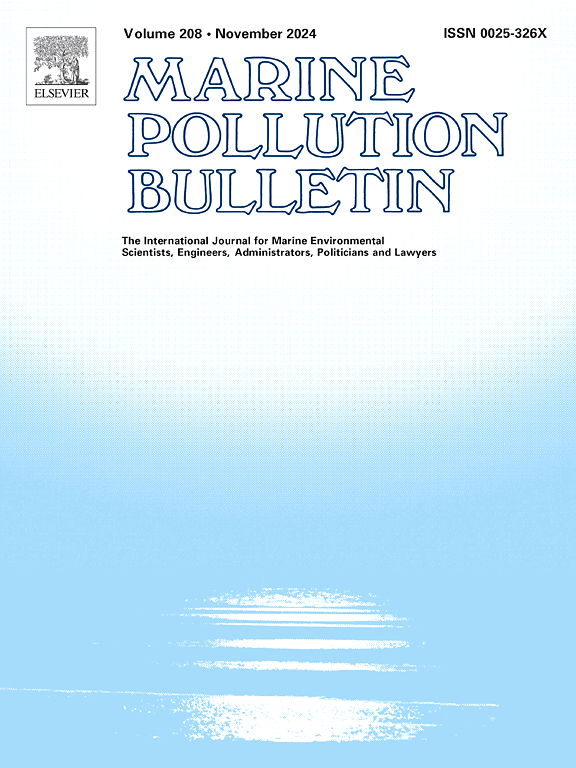绿色海运的多准则决策:减少海洋污染的混合模糊AHP-MOORA方法
IF 4.9
3区 环境科学与生态学
Q1 ENVIRONMENTAL SCIENCES
引用次数: 0
摘要
由于严格的国际海事组织法规和日益增长的环境问题,海运业面临越来越大的压力,需要采用可持续的运输解决方案。然而,缺乏结构化的、多标准的决策框架限制了客观优先考虑替代绿色海洋战略的能力。本研究将模糊层次分析法(Fuzzy AHP)与MOORA法(MOORA)相结合,提供了一个定量、透明的评价模型。结果显示,减少二氧化碳排放量(25.4%)和能源效率(20.1%)是最重要的因素,其次是实施费用(8.5%)和运营费用(7.2%)等经济因素。在MOORA排名中,节能船舶设计(得分0.85)是最有效的策略,其次是氢和氨基燃料(得分0.81)。LNG和生物燃料(0.72分)是过渡性解决方案,而风力推进(0.69分)和排放控制技术(0.62分)则表现出操作上的局限性。敏感度分析证实了排名的稳健性,增强了决策模型的稳定性。该研究为政策制定者和行业利益相关者提供了数据驱动的基础,指导采用基于科学验证排名的可持续海事战略。本文章由计算机程序翻译,如有差异,请以英文原文为准。
Multi-criteria decision-making for green maritime transportation: A hybrid Fuzzy AHP-MOORA approach to reduce marine pollution
The maritime industry faces increasing pressure to adopt sustainable transportation solutions due to stringent IMO regulations and growing environmental concerns. However, a lack of structured, multi-criteria decision-making frameworks limits the ability to objectively prioritize alternative green maritime strategies. This study addresses this gap by integrating Fuzzy AHP for criteria weighting and MOORA for alternative ranking, providing a quantitative and transparent evaluation model. The results show that CO₂ emissions reduction (25.4 %) and energy efficiency (20.1 %) are the most critical factors, while economic considerations, such as implementation costs (8.5 %) and operational costs (7.2 %), were ranked lower. The MOORA ranking identifies energy-efficient vessel designs (score: 0.85) as the most effective strategy, followed by hydrogen and ammonia-based fuels (0.81). LNG and biofuels (0.72) serve as transitional solutions, while wind-assisted propulsion (0.69) and emission control technologies (0.62) exhibit operational limitations. A sensitivity analysis confirmed the rankings' robustness, reinforcing the decision model's stability. This study provides a data-driven foundation for policymakers and industry stakeholders, guiding the adoption of sustainable maritime strategies based on scientifically validated rankings.
求助全文
通过发布文献求助,成功后即可免费获取论文全文。
去求助
来源期刊

Marine pollution bulletin
环境科学-海洋与淡水生物学
CiteScore
10.20
自引率
15.50%
发文量
1077
审稿时长
68 days
期刊介绍:
Marine Pollution Bulletin is concerned with the rational use of maritime and marine resources in estuaries, the seas and oceans, as well as with documenting marine pollution and introducing new forms of measurement and analysis. A wide range of topics are discussed as news, comment, reviews and research reports, not only on effluent disposal and pollution control, but also on the management, economic aspects and protection of the marine environment in general.
 求助内容:
求助内容: 应助结果提醒方式:
应助结果提醒方式:


